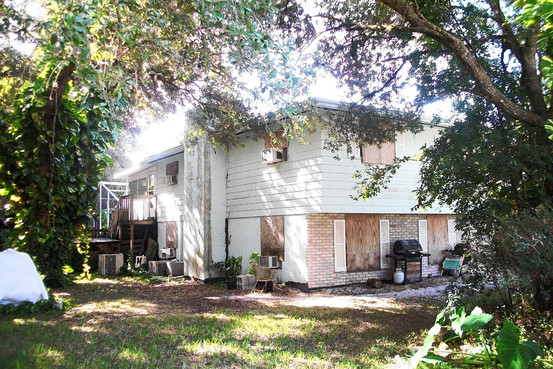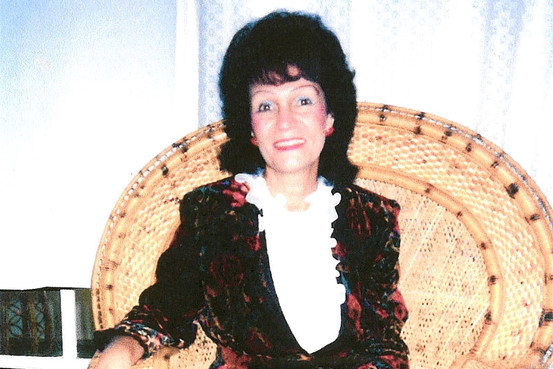
The 25-Year 'Foreclosure From Hell'
OKEECHOBEE COUNTY, Fla.—Patsy Campbell could tell you a thing or two about fighting foreclosure. She's been fighting hers for 25 years.
The 71-year-old retired insurance saleswoman has been living in her house, a two-story on a half acre in a tidy middle-class neighborhood here in central Florida, since 1978. The last time she made a mortgage payment was October 1985.
And yet Ms. Campbell has been able to keep her house, protected by a 105-pound pit bull named Dodger and a locked, rusty gate advising visitors to beware of the dog.
"They're not going to take this house," says Ms. Campbell. "I intend to stay in this house and maintain it as my residence until I die."
Ms. Campbell's foreclosure case has outlasted two marriages, three recessions and four presidents. She has seen seven great-grandchildren born, plum real-estate markets come and go and the ownership of her mortgage change six times. Many Florida real-estate lawyers say it is the longest-lasting foreclosure case they have ever heard of.
The story of how Ms. Campbell has managed to avoid both paying her mortgage and losing her home, which is currently assessed at more than $203,000, is a cautionary tale for lenders that cut corners and followed sloppy practices when originating, processing and servicing mortgages. Lenders are especially vulnerable in the 23 states, including Florida, that require foreclosures to be approved by a judge.
Ms. Campbell has challenged her foreclosure on the grounds that her mortgage was improperly transferred between banks and federal agencies, that lawyers for the bank had waited too long to prosecute the case, that a Florida law shields her from all her creditors, and for dozens of other reasons. Once, she questioned whether there really was a debt at all, saying the lender improperly separated the note from the mortgage contract.
She has managed to stave off the banks partly because several courts have recognized that some of her legal arguments have some merit—however minor. Two foreclosure actions against her, for example, were thrown out because her lender sat on its hands too long after filing a case and lost its window to foreclose.
Ms. Campbell, who is handling her case these days without a lawyer, has learned how to work the ropes of the legal system so well that she has met every attempt by a lender to repossess her home with multiple appeals and counteractions, burying the plaintiffs facing her under piles of paperwork.
She offers no apologies for not paying her mortgage for 25 years, saying that when a foreclosure is in dispute, borrowers are entitled to stop making payments until the courts resolve the matter.
"This is every lender's nightmare," says Robert Summers, a Stuart, Fla., real-estate lawyer who represents Commercial Services of Perry, an Iowa-based buyer of distressed debt that currently owns Ms. Campbell's mortgage and has been trying to foreclose. "Someone defending a foreclosure action can raise defenses that are baseless, but are obstacles for the foreclosing lender," he says, calling the system "an unfair burden" for lenders.
Continue reading...there's much more to this story...
http://online.wsj.com/article/SB10001424052748703865004575648900250047766.html
---
Faces of the Home-Foreclosure Crisis
The Tidal Wave of Defaults and Delinquencies That Began Four Years Ago Has Hit Individuals at All Levels of Society
http://online.wsj.com/article/SB10001424052748704610904576031632838153532.html
---
Foreclosure? Not So Fast
LOXAHATCHEE, Fla.—Israel Machado's foreclosure started out as a routine affair. In the summer of 2008, as the economy began to soften, Mr. Machado's pool-cleaning business suffered and like millions of other Americans, he fell behind on his $400,000 mortgage.
But Mr. Machado's response was unlike most other Americans'. Instead of handing his home over to the lender, IndyMac Bank FSB, he hired Ice Legal LP in nearby Royal Palm Beach to fight the foreclosure. The law firm researched the history of Mr. Machado's loan and found two interesting facts.
First, the affidavits IndyMac used to file the foreclosure were signed by a so-called robo-signer named Erica A. Johnson-Seck, who routinely signed 6,000 documents a week related to foreclosures and bankruptcy. That volume, the court decided, meant Ms. Johnson-Seck couldn't possibly have thoroughly reviewed the facts of Mr. Machado's case, as required by law.
Secondly, IndyMac (now called OneWest Bank) no longer owned the loan—a group of investors in a securitized trust managed by Deutsche Bank did. Determining that IndyMac didn't really have standing to foreclose, a judge threw out the case and ordered IndyMac to pay Mr. Machado's $30,000 legal bill.
Mr. Machado and his lawyer, Tom Ice, say they now want to convince the owners of the mortgage to cut Mr. Machado's loan balance to between $150,000 and $200,000—the current selling price for comparable homes in his community near West Palm Beach. "The whole intent was to get them to come to the negotiating table, to get me in a fixed-rate mortgage that worked," Mr. Machado said.
http://online.wsj.com/article/SB10001424052748704029304575526182962738098.html
---
How many different signatures can one robo-signer have..?...
Watch this quick slideshow and find out...
You will see several examples of ACTUAL fraudulent documents that were submitted by large, well known banks in court proceedings.
We're talking over the top, ridiculous fraud here - Fake people, fake signers, fake documents, false notaries, and EVEN fake banks...
